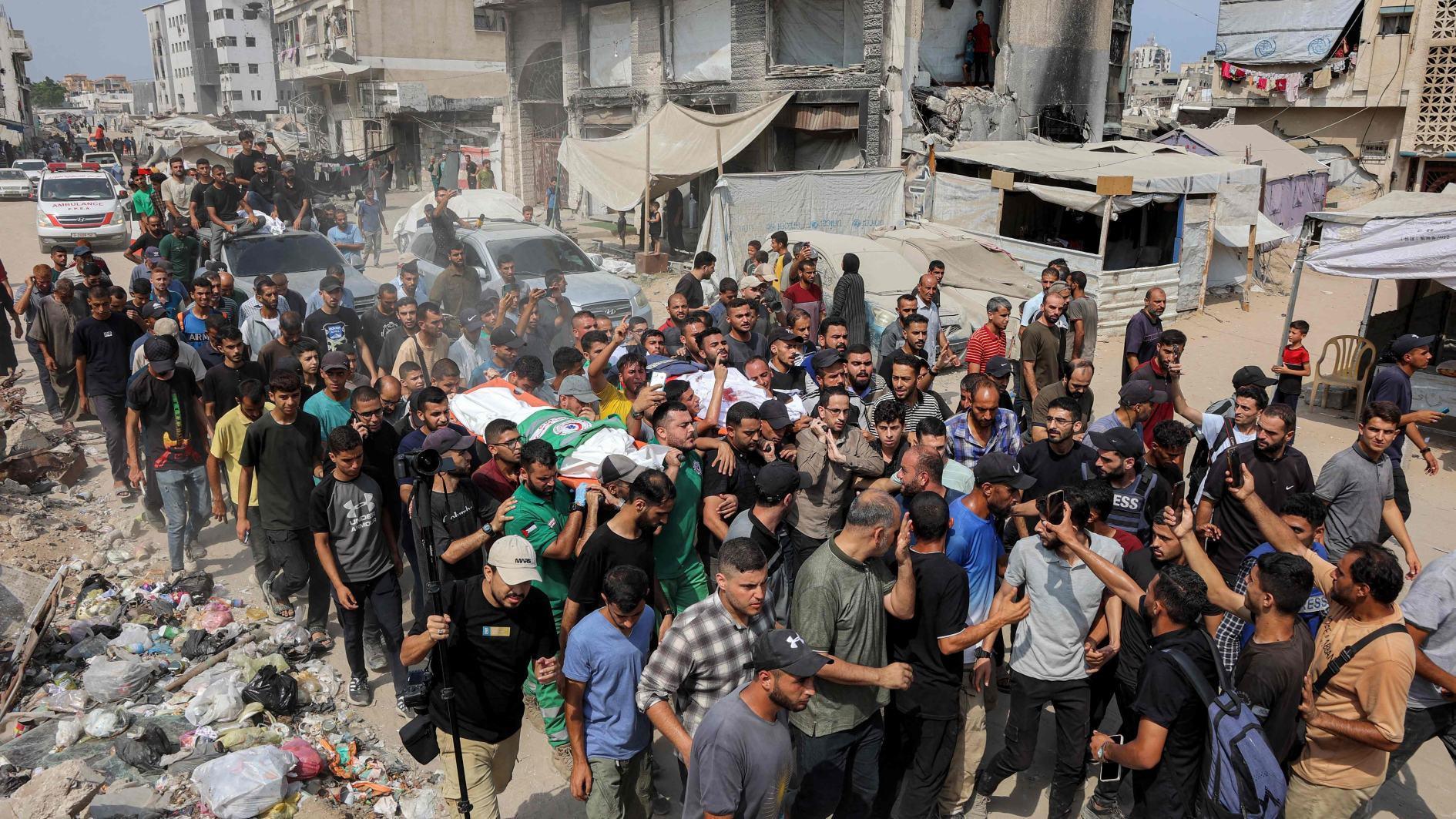
Gazans gathered on Aug. 11 for the funeral of five Al Jazeera staff members and a sixth reporter killed in an Israeli strike denounced by media organizations and human rights groups.
Dozens stood amid bombed-out buildings in the courtyard of Al-Shifa Hospital to pay their respects to Anas al-Sharif, a prominent Al Jazeera correspondent, and four of his colleagues.
A sixth journalist, Mohammed Al-Khaldi who worked as a freelance reporter, was also killed in the strike that targeted the Al Jazeera team.
Their bodies, wrapped in white shrouds with their faces exposed, were carried through narrow alleys to their graves by mourners including men wearing blue journalists' flak jackets.
Al Jazeera said its employees were hit in a tent set up for journalists outside the main gate of a hospital in Gaza City.
Israel confirmed it had targeted Sharif, whom it labelled a "terrorist" affiliated with Hamas, saying he "posed as a journalist.”
The incident marked the first time during the war that Israel's military has swiftly claimed responsibility after a journalist was killed in a strike.
Al Jazeera called the strike “targeted assassination” and accused Israeli officials of incitement.
Calling Al Sharif "one of Gaza's bravest journalists," Al Jazeera said the attack was a "desperate attempt to silence voices in anticipation of the occupation of Gaza."
Al-Sharif, 28, was one of the channel's most recognizable faces working on the ground in Gaza, providing daily reports in regular coverage.
Following his death, Al-Sharif’s team posted a message wrote by him months after the attack.
"This is my will and my final message. If these words reach you, know that Israel has succeeded in killing me and silencing my voice,” the statement said.
“I never hesitated for a single day to convey the truth as it is, without distortion or falsification,” the 28-year-old wrote.
In July, al-Sharif told the Committee to Protect Journalists (CPJ) that he lived with the “feeling that I could be bombed and martyred at any moment.”
After the attack, the CPJ said it was “appalled” to learn of the journalists’ deaths.
“Israel’s pattern of labelling journalists as militants without providing credible evidence raises serious questions about its intent and respect for press freedom,” said CPJ regional director Sara Qudah.
Reporters Without Borders (RSF) also condemned the "acknowledged murder by the Israeli army" of al-Sharif.
The German Journalists' Association (DJV) also denounced the killing of Palestinian journalists.
The U.N.’s human rights office said:,“We condemn the killing by Israeli military of 6 Palestinian journalists by targeting their tent, in grave breach of international humanitarian law.”
At least 242 Palestinian journalists were killed in Gaza since the beginning of the war, according to the office.
Apart from rare invitations to observe Israeli military operations, international media have been barred from entering Gaza for the duration of the war.
Al Jazeera is among the few outlets still fielding a big team of reporters inside the besieged strip, chronicling daily life amid airstrikes, hunger and the rubble of destroyed neighborhoods.
The network has suffered heavy losses during the war, including 27-year-old correspondent Ismail al-Ghoul and cameraman Rami al-Rifi, killed last summer, and freelancer Hossam Shabat, killed in an Israeli airstrike in March.